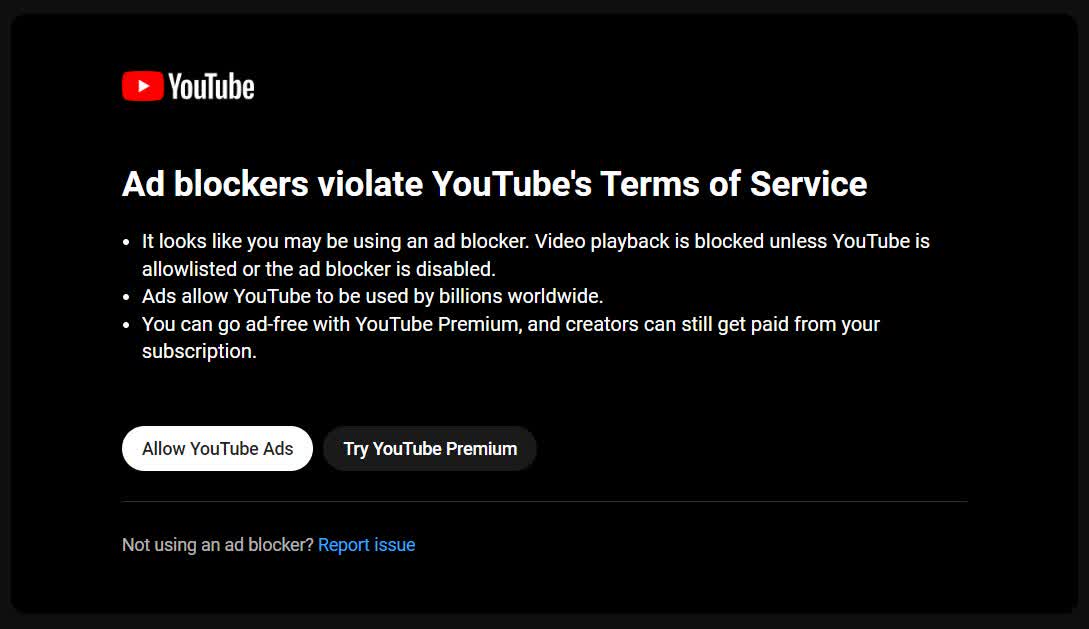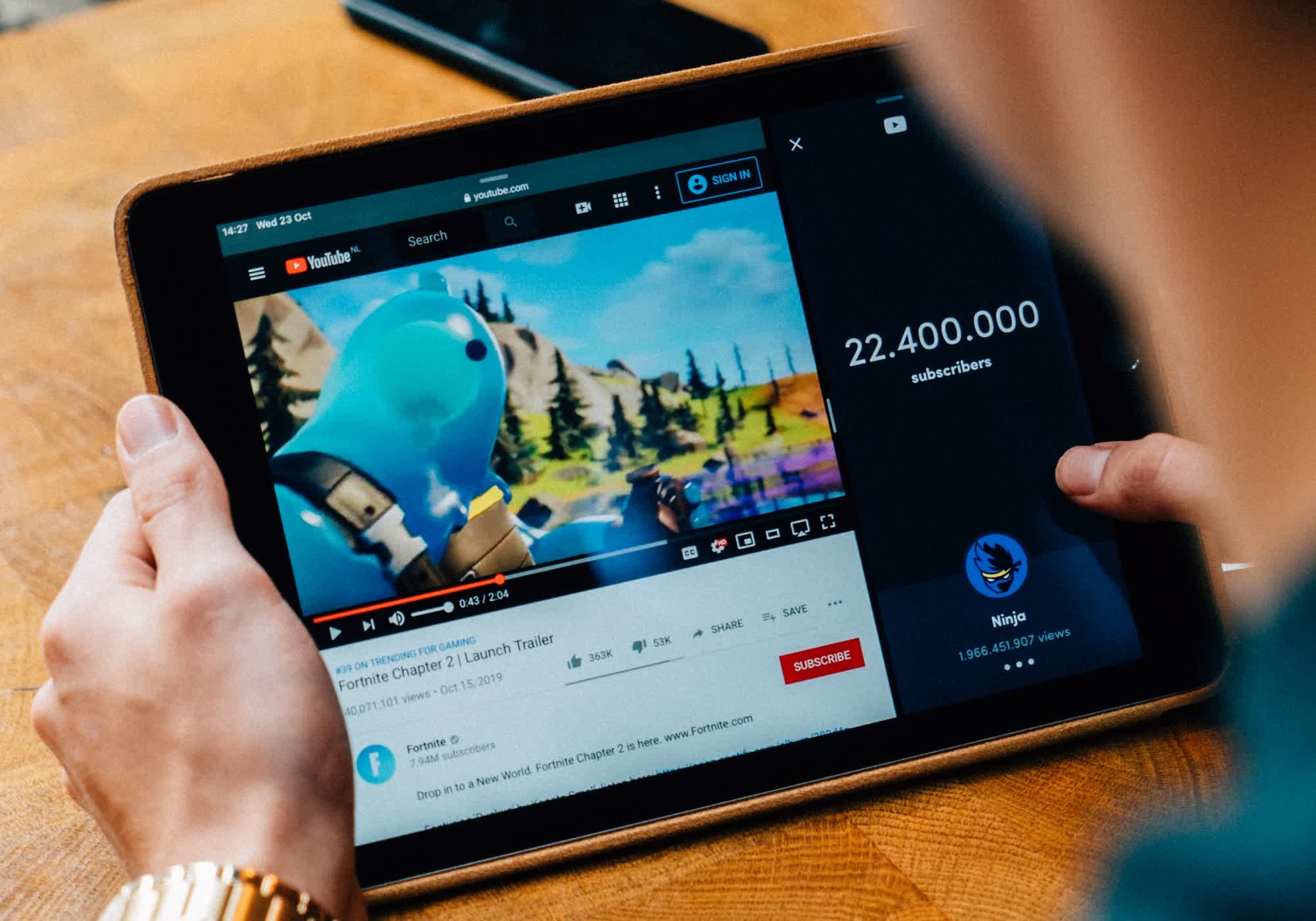What just happened? YouTube is taking a stand against the use of ad blockers to circumvent advertising content on its platform. A spokesperson for the Google-owned video platform recently told Insider that YouTube has launched a global effort urging viewers running ad blockers to either enable ads on the site or try its premium (paid) ad-free experience.
The rep added that using an ad blocker on YouTube is against the site's terms of service.
"Ads support a diverse ecosystem of creators globally and allow billions to access their favorite content on YouTube," the spokesperson noted.
YouTube started limiting video views for ad-block users back in June as part of a limited experiment, with some users receiving prompts informing them that the video player would be blocked after three videos if they did not disable the blocker or sign up for YouTube Premium.

At that time, YouTube Premium, the subscription ad-free experience, was priced at $11.99. Over the summer, however, YouTube quietly increased the price of the membership by nearly 17 percent to $13.99 a month, or $139.99 for a full year (which works out to about $11.66 per month).
Impacted users have been increasingly vocal about the change on social media platforms like X and Reddit, with some sharing tips on how to get around YouTube's ad-blocker detection using various browser extensions and other tweaks. Others are adamant in their belief that submitting to YouTube's wishes will result in a permanent ad blocker ban.
Cracking down on ad blockers is a viable way for Google and YouTube to increase ad revenue. Is it possible that they could lose some viewers over the ad block stance? Sure, but it is much more plausible that revenue will increase overall as some existing ad block users will no doubt choose to whitelist the site rather than lose access entirely. Others might also wish to support YouTube through a Premium subscription and continue with an ad-free experience. Plus, even if some users stop using YouTube, there won't be a loss of revenue because those users weren't watching ads anyway.
Image credit: Card Mapr
